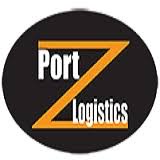Introduction: What is Intermodal Transportation?
Intermodal transportation is the backbone of modern logistics, seamlessly connecting various modes of transportation to move goods efficiently from origin to destination. Unlike traditional transportation methods, which rely solely on one mode, intermodal transportation combines multiple modes, such as rail, trucking, maritime, and air, in a coordinated and synchronized manner. This article delves into the intricacies of intermodal transportation, exploring its definition, significance, benefits, and future trends.
Understanding Intermodal Transportation
Intermodal transportation, in its essence, involves the movement of freight using multiple modes and containers that can easily switch between these modes. It provides a cost-effective and versatile solution for businesses looking to optimize their supply chains. The key components of intermodal transportation include standardized containers, intermodal terminals, and specialized carriers. Embracing intermodal solutions can lead to reduced transportation costs, minimized handling, and increased shipment security.
The Role of Intermodal Hubs
Intermodal hubs play a crucial role in facilitating the smooth transfer of cargo between different modes of transportation. These hubs serve as pivotal points where goods are transferred between trucks, trains, ships, and planes. They serve as consolidation points, offering efficient and time-saving solutions for shippers and carriers alike. Some prominent intermodal hubs across the globe include the Port of Singapore, the Port of Rotterdam, and the Port of Los Angeles.
Modes of Transportation in Intermodal Systems
The success of intermodal transportation heavily relies on the efficiency of various modes involved. Rail transport forms the backbone of intermodal systems, providing long-haul, high-capacity movement. Trucking takes over during the last-mile delivery, ensuring cargo reaches its final destination. Maritime transport is ideal for long-distance international shipping, while air transport offers swift and timely delivery of high-value goods.
Intermodal Containerization
Containerization revolutionized the transportation industry, and it is a fundamental element of intermodal systems. Standardized containers enable seamless transfer between different modes, ensuring goods remain secure and protected throughout their journey. This standardization has significantly enhanced supply chain efficiency, enabling quicker loading and unloading processes.
Challenges in Intermodal Transportation
While intermodal transportation offers numerous benefits, it is not without its challenges. Insufficient infrastructure, complex regulations, and the integration of various technologies pose significant obstacles. Addressing these challenges requires collaboration between stakeholders, investments in infrastructure, and the formulation of adaptive policies.
Sustainability and Environmental Impact
One of the key advantages of intermodal transportation is its positive impact on the environment. By combining energy-efficient modes like rail with others, intermodal systems reduce greenhouse gas emissions and promote sustainability. Implementing eco-friendly practices, such as optimizing routes and adopting alternative fuels, further enhance the industry's green credentials.
Global Trade and Intermodal Transportation
Intermodal transportation plays a pivotal role in facilitating international trade by providing efficient and reliable logistics solutions. The seamless movement of goods across borders enhances global commerce, fostering economic growth and creating new opportunities for businesses worldwide. Despite challenges, intermodal transportation remains a critical facilitator of global supply chains.
Intermodal Innovations and Future Trends
The intermodal industry continues to evolve with technological innovations. Automation, artificial intelligence, and the Internet of Things are transforming the way goods are moved, monitored, and managed. Predictive analytics and smart tracking solutions enhance visibility and enable proactive decision-making. As these technologies mature, they are set to reshape the future of intermodal transportation.
Intermodal Safety and Security
Safety and security are paramount in intermodal transportation, as goods pass through multiple hands and modes. Collaborative efforts between industry stakeholders, including carriers, shippers, and governments, are essential to ensure cargo integrity and prevent disruptions or theft. Embracing advanced security measures and real-time monitoring helps safeguard shipments throughout their journey.
Choosing the Right Intermodal Solutions
Selecting the most suitable intermodal services requires careful consideration of various factors, including cost, transit time, and the nature of the cargo. Businesses can optimize their supply chains by leveraging intermodal solutions that best align with their needs. Examining successful case studies can provide valuable insights into making informed decisions.
The Role of Government and Public Policy
Government support and favorable public policies play a crucial role in driving the growth of intermodal transportation. Investments in infrastructure, streamlined regulations, and the encouragement of public-private partnerships foster a conducive environment for the industry's expansion. Effective policies ensure the smooth functioning of intermodal systems and bolster their competitiveness in the global market.
Intermodal and E-commerce
With the boom in e-commerce, the demand for efficient logistics solutions has skyrocketed. Intermodal transportation offers a viable solution to handle the complexities of e-commerce fulfillment. Integration of technology, data-driven decision-making, and flexible delivery options are key


No comments yet